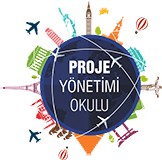Spain University Education Guide

Spain; climate, social life and natural beauty from Turkey to adorn your dreams of many students within the framework of the Erasmus program. So how would it be to study at university in Spain? In our article, we will examine university education, application and visa process in Spain.
SPAIN UNIVERSITY EDUCATION
Spain seems to have gained an increasing momentum in terms of the number of students coming from abroad. The number of students, which was 97,000 in 2012, reached nearly 250,000 in 2016. Spain is home to the University of Salamanca, founded in 1084, one of the oldest universities in the world, with a long history in higher education. There are 38 Spanish universities in the list of top 1000 universities in the world. Featured universities; Pompeu Fabra University, the University of Barcelona, the Autonomous University of Barcelona, the Autonomous University of Madrid, the University of Valencia and the University of Navarra.
Higher Education System in Spain;
- Universities (escuelas universitarias)
- University colleges (colegios universitarios),
- Faculties (facultades)
- Higher technical schools of engineering and architecture (technical and architectural institutions)
Your application conditions to universities in Spain change depending on whether you are a citizen of the European Union country or not. Students applying from Turkey Selectividad (PAU) examination (Spanish university entrance examination) must enter.
Selectividad Exam Content
Selectividad exam consists of two parts.
First part:
- Spanish grammar and paragraph questions
- Spanish history
- Elective foreign language (such as German, Italian, Portuguese, French…) questions
- One of the following fields will be selected.
Social Sciences: Art History
Science: Mathematics, Physics, Chemistry, Biology, Technical Drawing
Second part:
In the second part, students usually choose two of the following fields and prepare for them, taking into account the courses they have taken in the last two years in high school and the field they want to study at the university.
Social Sciences: World Literature, Mathematics for Social Sciences
Science: Mathematics, Physics, Chemistry
In Spain, education is generally given in Spanish. In recent years, faculties providing education in English have also become widespread. Spanish language proficiency is required at B2 level. In both undergraduate and graduate programs, if the candidate is not proficient in Spanish, one year of preparation is required
The average tuition fees of public universities in Spain are between € 1,000 and € 3,000 per year. Program fees of private universities also vary between 6,000 and 20,000 Euros. Based on the cities of Madrid and Barcelona, the average cost of living is between € 1,000 and € 1,500.
APPLICATION PROCEDURES AND REQUIRED DOCUMENTS
In order to receive university education in Spain, students must demonstrate their Spanish / English proficiency. B2 for Spanish and Toefl IBT 80 or 6.5 IELTS are required for English. Document proving your language proficiency
Italian in Turkey, German, graduated from French school and being able to start their undergraduate education in these countries without the need for any additional examination or equivalent or IB, which is equivalent in the European Union (International Baccalaureate – International Baccalaureate) diploma who graduated from one of the Turkish high schools be. If the student does not meet these conditions, he / she has to take the Selectividad exam. Students apply to the university with a score calculated by taking 40% of the score they got from the Selectividad exam and 60% of the high school graduation grade.
High school diploma (Spanish / English translation must be done.)
Transcript (Spanish / English translation must be made.) Grade point average must have a good score.
Motivation letter
APPLICATION DATES
In Spain, the academic year begins at the end of September and at the beginning of October.
As of July, universities begin to accept student registration.
In the choices made in July, the student has the right to choose from the additional quotas in September if he / she could not move to any educational institution.
SPAIN CONSULATE, DOCUMENTS REQUIRED FOR STUDENTS THAT WILL STAY MORE THAN 90 DAYS IN SPAIN
1 – Passport (valid for at least 12 months after travel to Spain)
2 – Originals and photocopies of the new and old passports (photocopy of processed pages and personal information)
3 – Visa application form (Spanish / English) will be filled and signed
4 – 2 biometric photos
5 – Acceptance from the center where the training or course will be viewed
6 – Documents pertaining to fees showing communication with the institution to be trained or training (does not cover Erasmus people).
7 – Acceptance letter documenting the relationship of the students who will go on scholarship, from the center where they will receive education or courses
Visa applicants, who will stay for more than 8 – 180 days, medical delegation report and photocopy from the full-fledged hospital. (It should be translated into English or Spanish, certified by Notary Public, and “La Haye Apostille” should be shot in the Governorate. Also, reports from the health center will not be accepted.
For visa applicants who will stay for more than 9 – 180 days, a criminal record and photocopy. (It should be translated into English or Spanish, certified by a Notary Public, and “La Haye Apostille” should be shot in the Governorate.
10 – Photocopy of identity card
11 – Example of a full-fledged incident registration (for the identification of ties with the family)
12 – Residence Certificate of Residence, signed and approved
13 – Visa request petition (person’s home address and phone numbers must also be specified)
14 – Flight ticket, hotel reservation or accommodation information
15-Travel health insurance (30.000 Euro guaranteed, covering travel time)
16 – If the sponsor is a person or an institution, a petition explaining the situation in question.
17 – Student Certificate in case the person applying for the visa is a student
18 – Consent name signed by their parents if the person is under the age of 18 (Notarized)
19 – If graduates of Medicine and Surgery, Pharmacy, Psychology, Chemical Sciences and Biological Sciences departments want to study in the field of specialization in Spain, it is obligatory to submit the Spanish equivalence of their diploma, and the acceptance certificate from the Spanish Ministry of Health, where the hospital or center they will specialize in is specified. .
Ece Şen
Project Management School Editor








